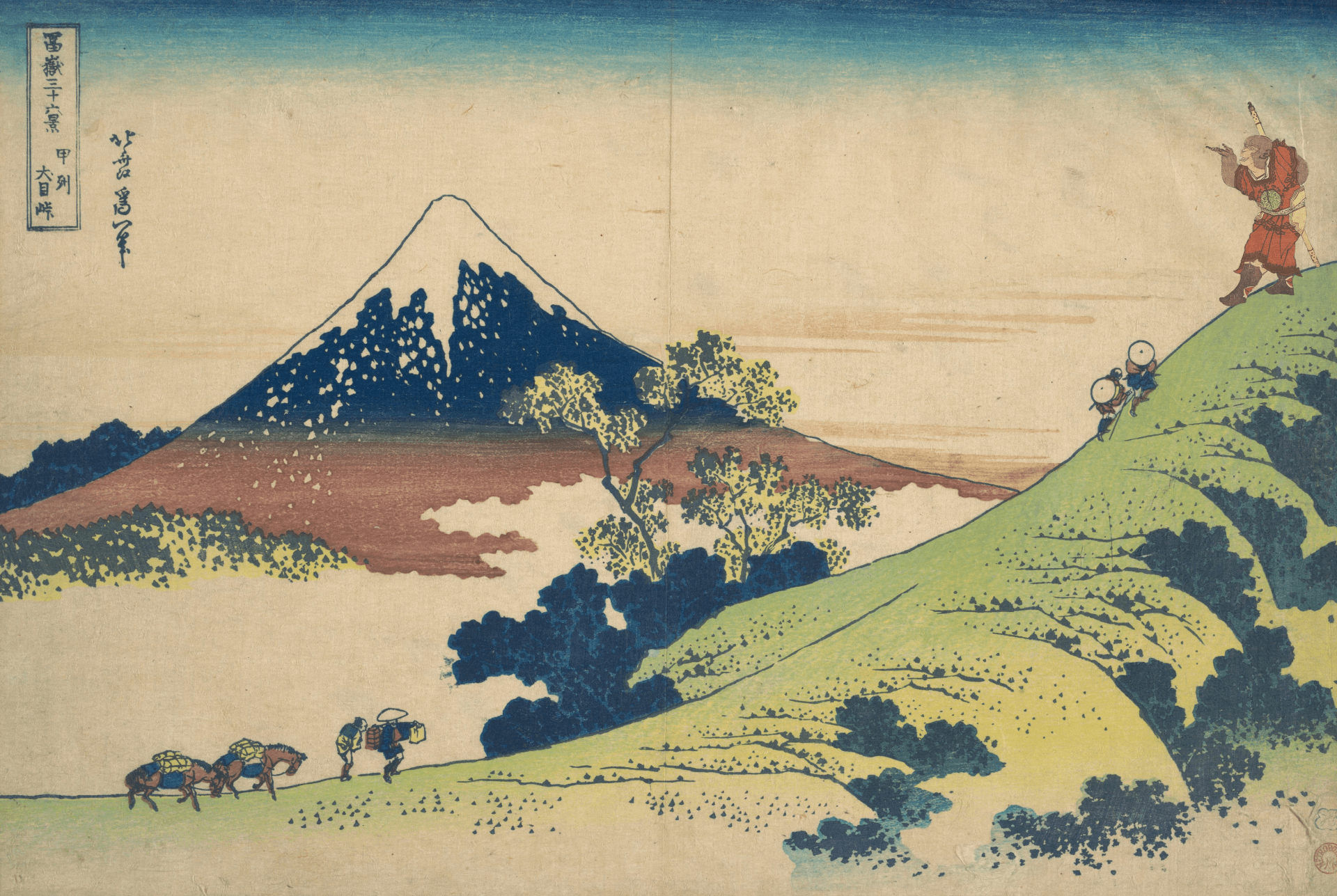
Food for Thought
Hey, uh -- you might could read this first for some of that, um, "context" we keep talking about round here.
You'll save me time and yourself trouble.
And, while you're at it, or before you're at that, why not read this, too?
I was told, more than once, while working at the Spring Forest Qigong healing center, Just come in, do your work, and when you're done -- leave your work at work.
Apparently, I had a hard time with that.
And, I mean -- that is right; and, understood from a very high level, one might call it a supreme spiritual truth.
But, in my experience, when, all day long, you hear the plaints of the suffering, are constantly being sucker-punched by strangers' unbalanced emotions, and walk into that with neither mask nor guard, but with an open heart...
... what I'm saying is, those of us like that who have not yet fully realized supreme spiritual truths go home with the echoes of those encounters bouncing off each other, and the walls of our inner world, will we, nill we.
Not to complain; I'm just sayin.
And, as Gurdjieff was fond of sayin:
"The human organism receives three kinds of food:
1. The ordinary food we eat
2. The air we breathe
3. Our impressions.
It is not difficult to agree that air is a kind of food for the organism. But in what way impressions can be food may appear at first difficult to understand. We must however remember that, with every external impression, whether it takes the form of sound, or vision, or smell, we receive from outside a certain amount of energy, a certain number of vibrations; this energy which enters the organism from outside is food ...
"For its normal existence the organism must receive all three kinds of food, that is, physical food, air, and impressions. The organism cannot exist on one or even on two kinds of food, all three are required. But the relation of these foods to one another and their significance for the organism is not the same. The organism can exist for a comparatively long time without a supply of fresh physical food ... WIthout air he can exist only for a few minutes, not more than two or three; as a rule a man dies after being four minutes without air. Without impressions a man cannot live a single moment."
You may not be able to tell by looking (though perhaps you may by listening): I waxed fat on this overrich provender at the healing center.
But as was intended by Great Nature, such overmuch overrich provender, which having gorged on and laid up as great store of fat for lean days, I have since burned up in the fires of conscience -- which doing, I have to say, has really taken me places.
As the saying goes that has been echoing in my mind the last few days: there is no higher consciousness without higher conscience.
For you to go anywhere, each must keep in step with the other, and the first step is conscience, not consciousness.
This, in turn, reminds me of something else Gurdjieff mentioned. This time, I'll summarize.
In fact, better yet, I'll quote myself.
This is from the days of this:
George Gurdjieff traveled the world in search of Truth -- the real kind.
He says he met a wise old Persian.
Gurdjieff had taught himself hatha yoga, and, as the yogis advised, was in the habit of chewing his food into a warm slurry before he swallowed it.
The Persian asked him why.
Gurdjieff said, that way, his body could assimilate the nutrients and extract the energy more fully.
The Persian said Gurdjieff was stupid.
You understand the cultivation of outer muscles, but you haven't even considered that you have inner muscles that need cultivation.
A young man in the habit of so thoroughly pre-digesting his food would only weaken his digestive organs, having deprived them of the work natural to them; the result would be a useless stomach, and sickness, in old age.
Better, the Persian said, to swallow your food in big pieces, bones and all, and let the organs work to earn their nutrition.
It's a little out-of-context, this quotation, but that's OK -- a concession to need; I excised this little lump of living flesh from a rotting corpse it would be better not to exhume and exhibit.
And, this little lump will leaven the whole, creating a grander, and more nourishing, context for the few who stand in line at this bakery's door.
Anyway.
What I'm saying is, I didn't mind feasting and gorging at the healing center, because I remembered the words of the wise Persian, and of Gurdjieff.
And, what I'm saying is, now that I've had ample instruction in digestion and have a better sense of my metabolism -- I tend to absorb things faster.
And, again, what I'm saying is, this weekend, having taken the time to digest the impressions of what I wrote here, something came to mind, or to my understanding.
I talked a bit about a certain English professor there, my impressions of her, her ideas of writing and review, and about music, my impressions of it, and what is called "musical criticism."
All that talk sent me back to the archives, so to speak, digging to see what else I might unearth from that era of my writing, and I found the first "message-board post" (of the twelve weekly ones required of all students that semester) that I'd written for that professor's class on Medieval Literature.
And, wouldn't you know it?
I'd totally forgotten about it.
It was -- a review of music.
I read it again.
I have to say -- it's really good; but then, my writing usually is.
I also have to say, first, I guess I can't say I haven't done that sort of writing before, and second, that that's usually how these classes went -- first I came in quiet, and made neither scene nor impression while taking everything in.
I think of Gurdjieff again:
"Having examined the room, I turned my eyes to Mr. Gurdjieff. He looked at me, and I had the distinct impression that he took me in the palm of his hand and weighed me. I smiled involuntarily, and he looked away from me calmly and without haste ... He did not look at me again in this way and the impression was not repeated."
And:
"My only memory of that prior time was that I had been frightened of him: partly because of the way he looked at—or through—me, and partly because of his reputation."
Anyway.
As far as that class, and those classes, went, when I'd understood the flavor of things to my satisfaction and was asked to open my mouth, I usually gave a "response-in-kind," though usually stentorian, whereat the halls of Ilúvatar trembled, if I remember my Silmarillion well.
I suppose the idea was -- OK, let's just make it clear from the start: I see what you're about, so here's what I'm about, and I'm gonna say it loud so you can't tell me you didn't hear it.
Anyway.
I can't say I remember the song, or songs, I wrote about, but -- like I said, I think this is pretty good, though, stentorian proclamation notwithstanding, I did color more or less within the lines there; I went full-psychedelic kaleidoscope later, and elsewhere, having first cleansed the doors of perception a bit. You'll forgive me my restraint: it was a Herculean endeavor amid Augean conditions.
Oh, and the writing is prefaced by what the professor "prompted" us with, to give you ever more context.
18 April 2022
"For our next class, please print out, read and bring to class the 4 songs found under “Modules” and then "1. Singing of Love: Troubadours, Trobairitz, and Pop Music." Two of these are examples of medieval troubadour poetry, two modern pop songs. There are also links so that you can hear all 4 songs performed.
Choose one of the songs to analyze. Your analysis should focus on a small passage (5-6 lines or so). You may want to choose one or two of the following questions (though you needn’t consider all of the following and you should feel free to pose your own):
- How would you describe the speaker’s first person voice? What kind of narrative persona is adopted?
- What kind of relationship does the narrator attempt to establish with the object of his or her attention?
- What kind of imagery does the poet use to describe his or her relationship to the beloved? What is the effect of this language?
- Where does the listener stand in relation to this couple?
- Is there an explicit or implied relation to a wider community? What is the relation between public and private life?"
Though it should not surprise us that in verbal art -- say, poetry, or song -- whose aim is the expression of elevated sentiment, the language itself should be somehow elevated -- whether in choice of word, turn of phrase, or by compulsive recourse to metaphor -- this tendency is especially evident in the four songs here, 1, 3, and 4 in particular.
Specifically, Jill Scott's "Long Walk" takes the feeling of attraction she feels for a man and, in a broad and sustained metaphor, conveys it to her listeners through the language and imagery of religion and salvation. This puts her beloved, no less than herself, in a curious position.
While this short analysis will consider five or six lines in particular, they are not sequential; they are, however, thematically and aesthetically linked, so that in their analysis as one fluid thought, both Scott's intention as an image-making communicator and the overall meaning of the song will be clear.
In the first stanza, Scott is expressing relief and thankfulness for her beloved's arrival; most notably, she appreciates his "peace mentality," after expression of which she says, "Lord, have mercy on me/ I was blind, now I can see/ What a king's supposed to be/ Baby I feel free."
So, immediately, both God and the Christian hymn "Amazing Grace" are evoked, while the beloved is likened to a king, through whose influence his lover has been liberated from blindness and bondage. It seems that Scott is drawing parallels between the beloved and Christ (who is commonly understood and invoked as savior-king, and who is taken to have cured both physical and spiritual blindness). This, then, puts the lover in the place of supplicant or sinner, according to convention.
We can pick up the thread of religious and salvific im-personation of the beloved and his power again in one of the song's choruses; at the end of each repetition, Scott (I am assuming the speaker to be some version of her) asks him, not only to walk with and to open his heart to her, but to discuss a religious text as well -- whether a Qur'anic sura, a New Testament verse, or the whole of the Psalms. Is this what lovers usually do? But both of the first allusions implore humility, decidedly Christian religious values: again, we have the beloved, if not in the role of savior, then of something like a Christ-like teacher.
More explicitly, though, in the third stanza, Scott says that, although "Your background, it ain't squeaky clean shit... / You ain't no saint, we all are sinners/ But you put your good foot down and make your soul a winner," her beloved is still "supreme," and his humility amid all that arouses her. So, again we have invocation of the pair, as members of fallen humanity, as sinners, while the savior-beloved is "supreme" (a decidedly religious-flavored word in this context), humble (a supreme Christic value), and one who overcomes filth to redeem himself and "numb" her with bliss.
Aside from that, amid talk in the choruses of elation and stimulation -- love nearer to the physical than to the refined spiritual pole -- there is mention of temptation and education; as if to balance out the physicality, there is acknowledgment of being drawn into something undesirable, and of less fleshly interest between them.
What is the effect of this on the listener, then? We have a strongly personal love between two people, with the woman, if not a debased supplicant -- she comes across as strong and perceptive, -- then at least some sort of unfree longer after release, whose beloved, kingly, self-elevated above the dirt of his past, is as a savior, stimulating, awakening, and uplifting his lover in an almost religious sense, giving life to the dead. This song is almost... chaste when you think about it, and wholesome.





